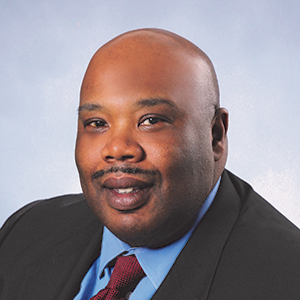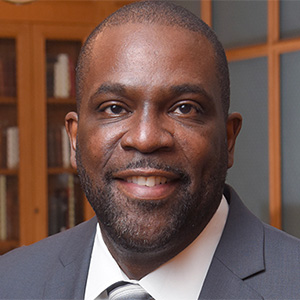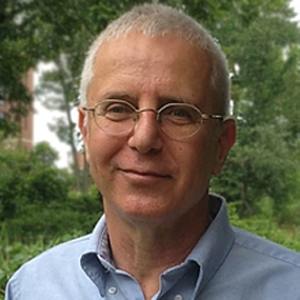ASBMB names 2023 award winners
The American Society for Biochemistry and Molecular Biology announced today the winners of its annual awards. Colleagues and other leaders in the field nominated the winners for making significant contributions to biochemistry and molecular biology and to the training of emerging scientists.
The recipients will give talks about their work at the society’s 2023 annual meeting, Discover BMB, slated for March 25–28 in Seattle.
In addition to cash prizes ranging from $500 to $35,000, each ASBMB award consists of a plaque and transportation expenses to the ASBMB annual meeting.
Learn more about the ASBMB awards.

ASBMB Award for Exemplary Contributions to Education
Recognizes an individual who encourages effective teaching and learning of biochemistry and molecular biology.
Regina Stevens–Truss is a professor at Kalamazoo College in Michigan who has served in numerous leadership positions at the ASBMB. She has been a member of the society’s Education and Professional Development Committee and Minority Affairs Committee (now Maximizing Access Committee). She is a past member of the steering committee that created the concept-driven teaching strategies that laid the foundation for the ASBMB’s certification exam. She was the principal investigator in 2012 on a National Science Foundation grant that supported a STEM K-12 outreach initiative by the society called Hands-on Outreach to Promote Engagement in Science (HOPES for short).

ASBMB–Merck Award
Recognizes outstanding contributions to research in biochemistry and molecular biology.
Squire J. Booker is an Evan Pugh professor of chemistry and of biochemistry and molecular biology and the Eberly Family distinguished chair in science at The Pennsylvania State University. He is also an investigator of the Howard Hughes Medical Institute. His lab studies catalytic mechanisms of redox enzymes involved in natural product biosynthesis and human health. He is deputy editor of ACS Bio & Med Chem Au, an open-access journal of the American Chemical Society, and an executive associate editor of the ACS journal Biochemistry. He became an inaugural fellow of the ASBMB in 2021. He also won this year’s Ruth Kirschstein Diversity in Science Award. (See below.)

Avanti Award in Lipids
Recognizes outstanding research contributions in the area of lipids.
Russell DeBose–Boyd is the Beatrice and Miguel Elias distinguished chair in biomedical science and professor of molecular genetics at the University of Texas Southwestern Medical Center at Dallas. DeBose–Boyd’s lab studies regulatory mechanisms governing feedback regulation of HMG-CoA reductase, the rate-limiting enzyme in cholesterol synthesis. He is an associate editor for the Journal of Lipid Research and an editorial board member for the Journal of Biological Chemistry, both ASBMB journals. Read our Q&A with DeBose–Boyd.

Bert & Natalie Vallee Award in Biomedical Science
Awarded to an established scientist for outstanding accomplishments in basic biomedical research.
Erica Ollmann Saphire is a professor and the president and chief executive officer of the La Jolla Institute for Immunology. Saphire’s lab has solved structures of key proteins of the Ebola, Marburg, rabies and Lassa viruses and explained how they remodel these structures as they drive themselves into cells, how their proteins suppress immune function and where human antibodies can defeat these viruses. She used this information to galvanize two international consortia of former competitors to advance antibody therapeutics together. Saphire is a two-time ASBMB award winner. In 2015, she won the ASBMB Young Investigator Award.

DeLano Award for Computational Biosciences
Given to a scientist for the most accessible and innovative development or application of computer technology to enhance research in the life sciences at the molecular level.
Eytan Ruppin is a computational biologist and chief of the Cancer and Data Science Laboratory in the Center for Cancer Research at the National Cancer Institute. His lab develops computational approaches for the integration of multiomics data to understand better the pathogenesis and treatment of cancer. His research focuses on basic and translational studies aimed at broadening the scope of precision oncology to the realm of tumor transcriptomics.

Earl and Thressa Stadtman Young Scholar Award
Awarded to a scientist with 10 years or less of post-postdoctoral experience.
Scott Dixon is an associate professor in the biology department at Stanford University. His lab studies cell death and lipid metabolism using small-molecule screening, biochemical analysis of protein function, and model organism genetics. Dixon is a member of the program planning committee for Discover BMB, the society’s annual meeting.

Herbert Tabor Research Award
Given for excellence in biological chemistry and molecular biology and contributions to the community of scientists.
Ajit Varki is a physician–scientist and distinguished professor at the UC San Diego School of Medicine. His lab studies roles of sialic acids in biology, evolution and disease, with a particular emphasis on uniquely human features. Of his nearly 500 publications, one-sixth are in the Journal of Biological Chemistry. He also is recognized for creating the first major open-access research journal, the Journal of Clinical Investigation (1996), and the first major open-access textbook, “Essentials of Glycobiology” (2008). He’s an elected member of both the American Academy of Arts and Sciences and the National Academy of Medicine and winner of the Rosalind Kornfeld Award for Lifetime Achievement in Glycobiology (2020).

Mildred Cohn Award in Biological Chemistry
Recognizes and honors scientists at all stages of their careers who have made substantial advances in understanding biological chemistry using innovative physical approaches.
Anne Kenworthy is a professor of molecular physiology and biological physics at the University of Virginia and the assistant director of its Center for Membrane and Cell Physiology. Her lab studies membrane nanodomains, such as lipid rafts and caveolae, to learn how they assemble and function in health and disease. (Read about her recent high-content analysis of membrane vesicles.) Together with collaborators at the University of Michigan and Vanderbilt University, her group also recently provided the first glimpse into molecular architecture of an essential building block of caveolae — oligomeric complexes formed by the membrane protein caveolin-1.

Ruth Kirschstein Diversity in Science Award
Honors an outstanding scientist who has shown a strong commitment to the encouragement of scientists from historically marginalized groups.
This is the second award this year for Squire J. Booker, a professor and distinguished chair at The Pennsylvania State University. (See the ASBMB–Merck Award above.) Booker is a past chair of the ASBMB’s Minority Affairs Committee and established the ASBMB grant-writing workshop, which now is known as the Interactive Mentoring Activities for Grantsmanship Enhancement workshop. He also co-organized the 2016 ASBMB annual meeting. He now serves on the Finance and Nominating committees.

Walter A. Shaw Young Investigator Award in Lipid Research
Recognizes outstanding research contributions in the area of lipids by a young investigator.
Itay Budin is an assistant professor of chemistry and biochemistry at the University of California San Diego. His laboratory uses approaches ranging from membrane biophysics to synthetic biology to investigate lipid function. Current areas of focus in his lab include the inner mitochondrial membrane and lipid adaptation for life in extreme conditions. In 2017, Budin received a Journal of Biological Chemistry/Herbert Tabor Young Investigator Award.

William C. Rose Award
Recognizes outstanding contributions to biochemical and molecular biological research and a demonstrated commitment to the training of younger scientists.
Catherine Drennan is a professor at the Massachusetts Institute of Technology and a Howard Hughes Medical Institute investigator. Drennan’s lab studies the structural biology of metalloenzymes. Her team’s targets have included multiple enzymes that depend on metal cofactors, such as ribonucleotide reductase, an early enzyme in DNA biosynthesis. She is a former member of the ASBMB Education and Professional Development Committee. As a postdoctoral fellow, she started the undergraduate poster competition at the ASBMB’s annual meeting. Her pedagogical work includes research into best practices for active lectures and the development of resources that help undergraduates appreciate the value of chemical principles in biology and medicine. She was a member of the ASBMB’s inaugural class of fellows in 2021.

ASBMB Early-Career Leadership Award
Recognizes individuals with a strong commitment to advancing the careers of women in biochemistry and molecular biology along with demonstrated excellence in research and/or service.
Gira Bhabha is an assistant professor at the NYU Grossman School of Medicine, where she began her independent career in 2017. The Bhabha lab works closely with the lab of Damian Ekiert; since their inception, the two labs have functioned synergistically as a single group. The Bhabha and Ekiert labs study structural mechanisms and cell biology of microbes and their interactions with hosts, using integrative approaches including X-ray crystallography, cryo-electron microscopy, cryo-electron tomography, optical microscopy, biochemistry, microbiology and cell biology techniques.

ASBMB Mid-Career Leadership Award
Recognizes individuals with a strong commitment to advancing the careers of women in biochemistry and molecular biology along with demonstrated excellence in research and/or service.
Kerry-Anne Rye is a professor at the University of New South Wales in Sydney and co-editor-in-chief of the ASBMB’s Journal of Lipid Research. Before taking the helm at the JLR in 2020, she had been an associate editor since 2008. She has been a research professor since 2013 at UNSW, where she serves as the deputy head of the School of Medical Sciences and studies atherosclerosis and diabetes. Rye was a member of the inaugural class of ASBMB fellows in 2021. She wrote an essay earlier this year about being a member of the society.


Alice and C.C. Wang Award in Molecular Parasitology
Recognizes established investigators who are making seminal contributions to the field of molecular parasitology.
Dyann Wirth is a professor at Harvard University’s T.H. Chan School of Public Health and the Broad Institute. Her lab studies the Plasmodium genus, members of which commonly infect humans with malaria. Her team is working on methods for molecular genetic manipulation of protozoan parasites to analyze genes important for their virulence and resistance to drugs.
Keith Matthews is a professor at the University of Edinburgh. His laboratory studies African trypanosomes, parasites spread by the tsetse fly, and the changes they undergo in the fly, using targeted reverse genetic approaches, global RNA and protein analysis, and other strategies.
Enjoy reading ASBMB Today?
Become a member to receive the print edition four times a year and the digital edition monthly.
Learn moreGet the latest from ASBMB Today
Enter your email address, and we’ll send you a weekly email with recent articles, interviews and more.
Latest in People
People highlights or most popular articles

Embrace your neurodivergence and flourish in college
This guide offers practical advice on setting yourself up for success — learn how to leverage campus resources, work with professors and embrace your strengths.

Survival tools for a neurodivergent brain in academia
Working in academia is hard, and being neurodivergent makes it harder. Here are a few tools that may help, from a Ph.D. student with ADHD.

Quieting the static: Building inclusive STEM classrooms
Christin Monroe, an assistant professor of chemistry at Landmark College, offers practical tips to help educators make their classrooms more accessible to neurodivergent scientists.

Hidden strengths of an autistic scientist
Navigating the world of scientific research as an autistic scientist comes with unique challenges —microaggressions, communication hurdles and the constant pressure to conform to social norms, postbaccalaureate student Taylor Stolberg writes.

Richard Silverman to speak at ASBMB 2025
Richard Silverman and Melissa Moore are the featured speakers at the ASBMB annual meeting to be held April 12-15 in Chicago.

Women’s History Month: Educating and inspiring generations
Through early classroom experiences, undergraduate education and advanced research training, women leaders are shaping a more inclusive and supportive scientific community.
